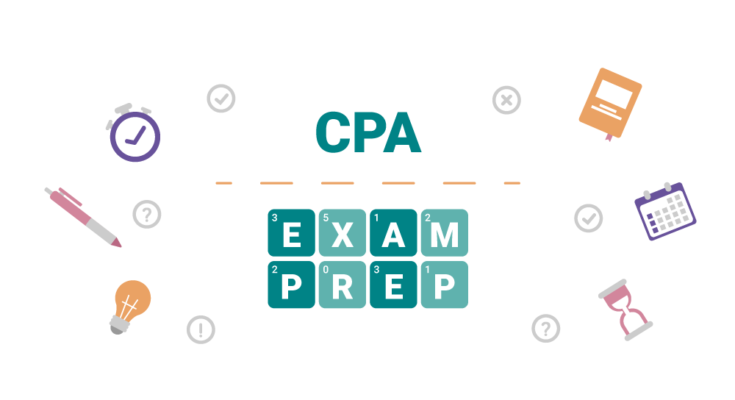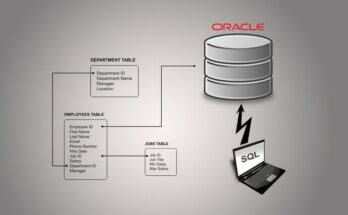Earning a Certified Public Accountant (CPA) credential is a significant accomplishment for those looking to excel in the field of accounting and finance. The journey to becoming a CPA typically involves fulfilling specific educational requirements, passing the CPA exam, and meeting the state-specific requirements for licensure. In North Alabama, one essential step in this process is completing CPA Excel courses for credit. This article will provide a comprehensive guide to help you navigate the North Alabama CPA Excel courses successfully.
We’ll discuss what these courses entail, how to prepare for them, and answer frequently asked questions to ensure you have all the information you need to succeed. By the end of this guide, you should feel confident and well-prepared to take on the North Alabama CPA Excel courses and work towards your CPA certification.
Understanding North Alabama CPA Excel Courses
North Alabama CPA Excel courses are designed to prepare aspiring accountants for the CPA exam. They cover a wide range of topics, including auditing, financial accounting, business environment, and regulation. These courses are offered by various institutions in North Alabama, such as universities, community colleges, and specialized CPA review course providers.
These courses are essential for ensuring that you have the necessary knowledge and skills to pass the CPA exam, which is known for its rigorous nature. Successful completion of the courses also allows you to earn academic credit, which can be applied to the educational requirements for CPA licensure.
It’s important to note that North Alabama’s CPA Excel courses align with the content areas tested on the CPA exam, so you can expect to cover topics such as:
- Auditing and Attestation (AUD): This section covers auditing procedures, ethics, and the role of the auditor.
- Financial Accounting and Reporting (FAR): Topics in this section include financial statement presentation, business combinations, and governmental accounting.
- Business Environment and Concepts (BEC): BEC deals with business concepts, economic concepts, and information technology.
- Regulation (REG): This section covers federal taxation, business law, and professional ethics.
Also Read: What are Excel Courses Useful in Finance
Preparing for CPA Excel Courses
Before you dive into your CPA Excel courses, there are a few essential steps you should take to ensure you’re well-prepared:
a. Meet the Educational Requirements
Check your state’s specific educational requirements for becoming a CPA. Typically, this includes a bachelor’s degree with a certain number of accounting and business-related credit hours. Ensure that you meet these requirements before enrolling in CPA Excel courses.
b. Choose the Right Course Provider
Research and select a CPA review course provider that aligns with your learning style and schedule. These courses can be taken online or in person, and they vary in terms of study materials and support.
c. Create a Study Plan
Plan your study schedule carefully. This should be a realistic plan that takes into account your work or other commitments. The CPA exam is challenging, so setting aside sufficient study time is crucial.
d. Familiarize Yourself with the Exam Format
The CPA exam consists of four sections, and each section has a specific format, including multiple-choice questions, task-based simulations, and written communication tasks. Get acquainted with the exam format to know what to expect.
Strategies for Success
Once you’re ready to begin your CPA Excel courses, it’s important to employ effective strategies to maximize your chances of success:
a. Stay Organized
Keep your study materials, notes, and schedules well-organized. This will help you stay on track and make the most of your study time.
b. Take Practice Tests
Most CPA review courses offer practice exams and questions that simulate the actual CPA exam. Taking these regularly will help you become comfortable with the format and identify your weak points.
c. Utilize Study Aids
CPA review courses often provide supplementary materials like flashcards, video lectures, and study guides. Use these to reinforce your understanding of key concepts.
d. Join Study Groups
Studying with a group of peers can be highly beneficial. It allows you to discuss difficult concepts, share resources, and hold each other accountable.
e. Seek Professional Guidance
If you’re struggling with a specific section or topic, don’t hesitate to seek help from your course instructor or a tutor. They can provide clarity and additional guidance.
f. Take Breaks
Remember to take regular breaks during your study sessions. This helps prevent burnout and keeps your mind fresh and focused.
Frequently Asked Questions (FAQ)
Q1: What is the passing score for the CPA exam?
The passing score for each section of the CPA exam varies by state but typically falls within the 70-75 range. North Alabama follows this range. However, it’s essential to check with your state’s board of accountancy for the most up-to-date information.
Q2: How long should I prepare for the CPA exam?
The amount of time required to prepare for the CPA exam varies from person to person. On average, candidates spend around 300-400 hours studying for all four sections. The key is to create a study plan that aligns with your strengths and weaknesses.
Q3: Can I retake sections of the CPA exam if I fail?
Yes, you can retake sections of the CPA exam if you fail. There are specific rules and waiting periods depending on your state, so consult your state board of accountancy for guidance.
Q4: What is the cost of CPA Excel courses in North Alabama?
The cost of CPA Excel courses varies depending on the course provider and whether you choose in-person or online instruction. On average, you can expect to pay anywhere from $1,000 to $3,000 for a comprehensive CPA review course.
Q5: Are there any prerequisites for enrolling in CPA Excel courses?
Prerequisites for CPA Excel courses typically include having a bachelor’s degree and completing certain accounting and business courses. The specific requirements may vary by course provider, so it’s essential to check with the institution offering the courses.
Q6: Can I take the CPA exam before completing the CPA Excel courses?
In most cases, you can take the CPA exam before completing the CPA Excel courses, but it’s highly recommended to complete the courses first. These courses are designed to prepare you for the exam, and the knowledge gained from them can greatly improve your chances of passing.
Conclusion
Passing North Alabama CPA Excel courses is a significant step toward becoming a certified CPA. By understanding what these courses entail, adequately preparing for them, and employing effective study strategies, you can increase your chances of success. It’s important to remember that passing the CPA exam requires dedication, hard work, and a commitment to your education.
Throughout your journey, stay motivated, seek support from peers and instructors, and don’t be discouraged by setbacks. Success on the CPA exam opens the door to numerous career opportunities in the field of accounting and finance, making the effort more than worthwhile. So, study diligently, stay focused, and prepare to excel in your North Alabama CPA Excel courses, setting you on the path to achieving your CPA certification.




